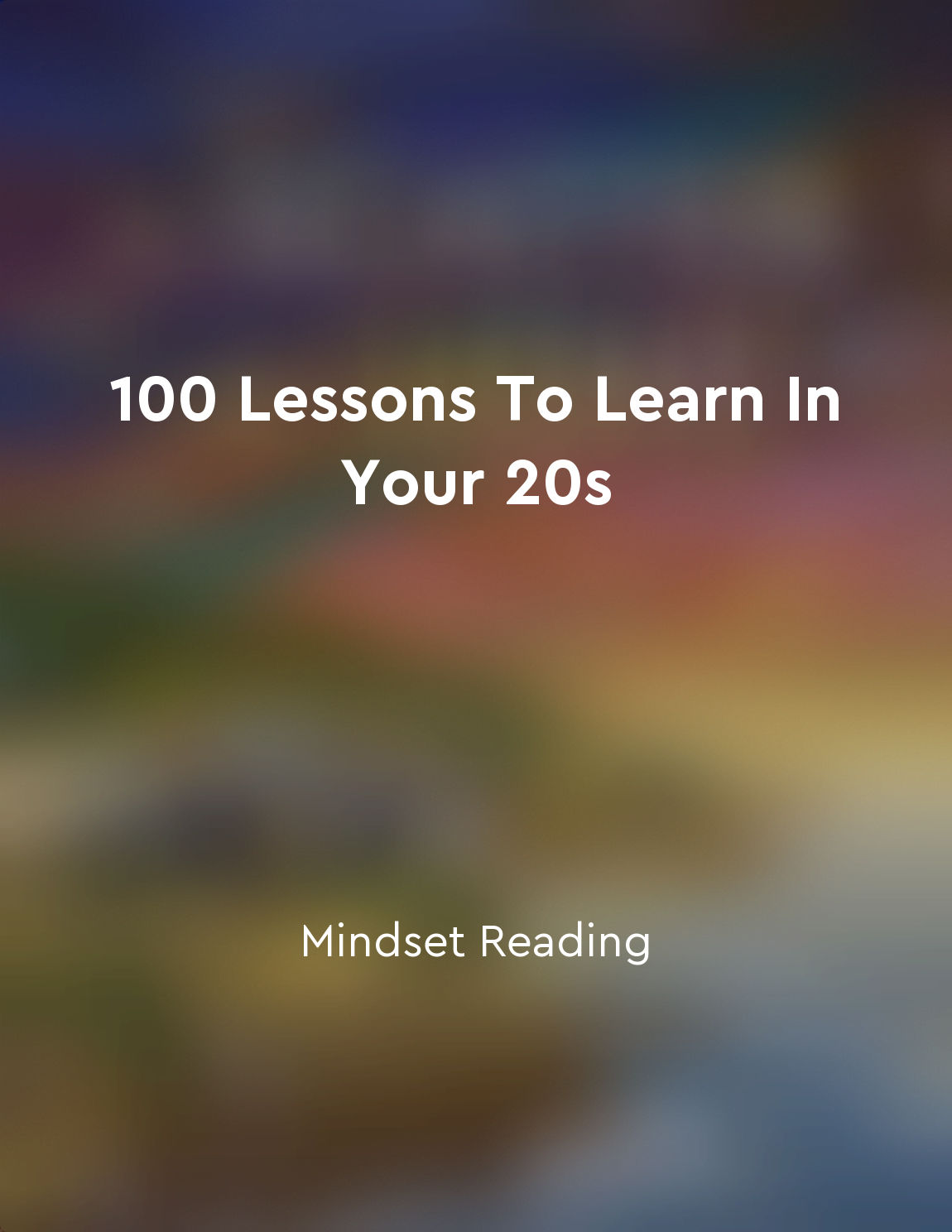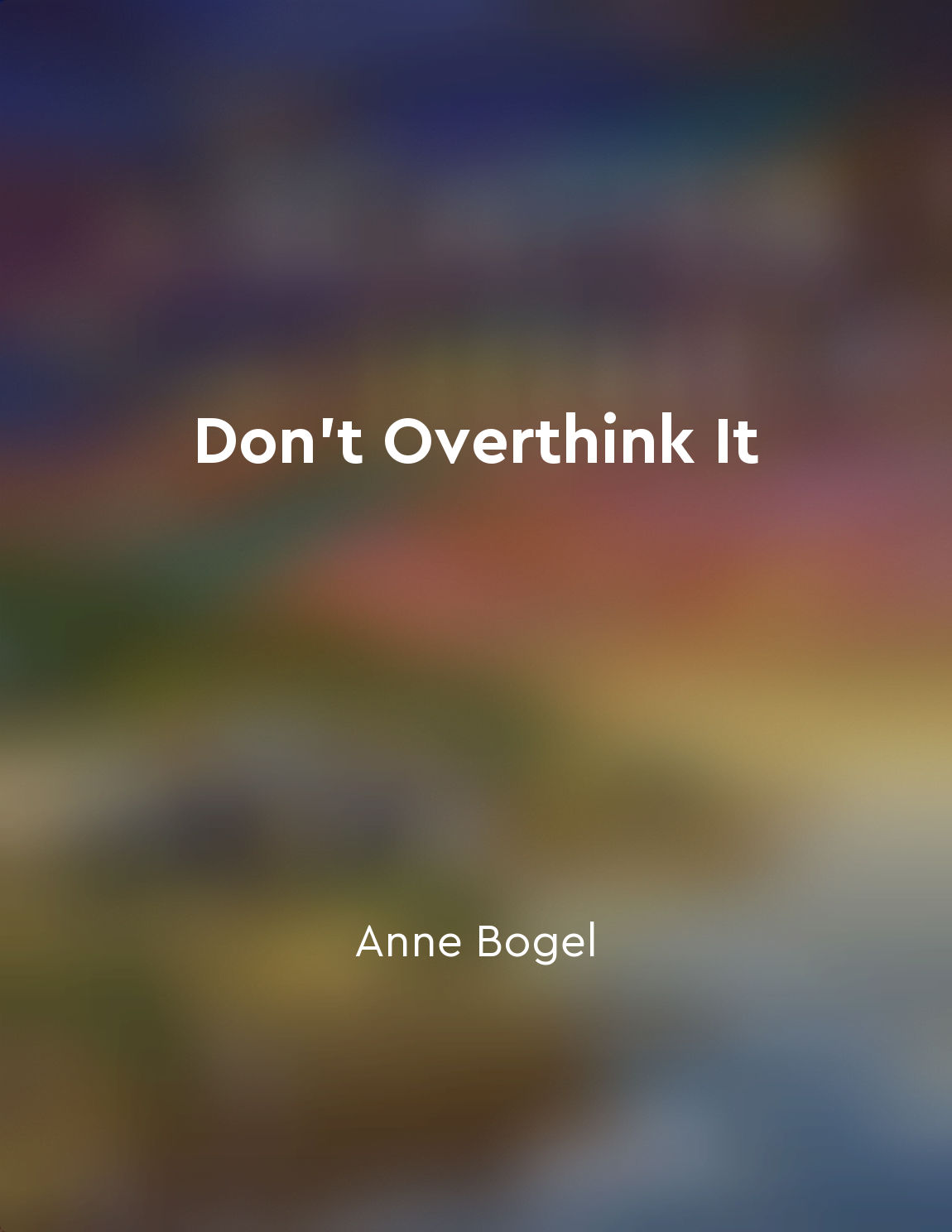Cultivate selfawareness for emotional regulation from "summary" of Kids' Guide to Staying Awesome and in Control by Lauren Brukner
Being aware of your own emotions is a key aspect of being able to control them. This means being able to recognize how you are feeling at any given moment. Once you are able to identify your emotions, you can then start to figure out what triggers them. For example, you may notice that you always feel anxious before taking a test or that you get angry when someone interrupts you. By understanding what causes your emotions, you can start to come up with strategies to manage them. Self-awareness also involves being mindful of how your body reacts to different emotions. Pay attention to things like your heart rate, muscle tension, and breathing patterns when you experience strong emotions. This can help you recognize when you are starting to feel upset before it escalates into a full-blown meltdown. By learning to tune into these physical cues, you can take steps to calm yourself down before things get out of control. Another important aspect of self-awareness is being able to label your emotions accurately. Instead of just saying, "I feel bad," try to be more specific. Are you feeling sad, angry, frustrated, or scared? By pinpointing exactly what you are feeling, you can better understand why you feel that way and what you can do to feel better. For example, if you are feeling sad, you may want to talk to a friend or do something that usually makes you happy. Finally, cultivating self-awareness involves reflecting on your emotions after the fact. Take some time to think about how you reacted in a certain situation and whether or not it was the best way to handle things. If you realize that you could have handled things better, don't beat yourself up about it. Instead, think about what you can do differently next time. By being aware of your emotions and how they affect you, you can start to take control of them and respond in a more positive and adaptive way.Similar Posts

Take care of your physical health
One of the most important things you can do in your 20s is to prioritize your physical health. This includes eating nutritious ...
Fear of failure
Fear of failure is a pervasive obstacle for many individuals, preventing them from taking risks or pursuing their goals. This f...
Practice gratitude and appreciation
One of the most powerful tools we have at our disposal is the ability to practice gratitude and appreciation. When we make a co...
Our brain processes emotions differently based on context
The way our brain processes emotions can vary depending on the context in which they arise. This means that the same emotion mi...

Seek therapy or support groups for healing and growth
When it comes to healing from emotional neglect, seeking therapy or joining a support group can be incredibly beneficial. Thera...

Overthinking often leads to indecision and anxiety
Overthinking creates a mental loop that can be both exhausting and paralyzing. The mind becomes a whirlwind of possibilities, a...
Cultivate a beginner's mind
The idea of maintaining a beginner's mind is at the core of Zen practice. This concept encourages us to approach life with an o...

Learn from failure
In a world full of complexity and uncertainty, failure is inevitable. However, the key is not to avoid failure at all costs, bu...
Practicing gratitude can shift focus towards positivity
The practice of gratitude can have a transformative effect on our mindset. By consciously focusing on the things we are thankfu...
Let go of expectations and attachments
In order to cultivate a sense of inner peace and contentment, one must learn to release any preconceived notions or emotional t...

